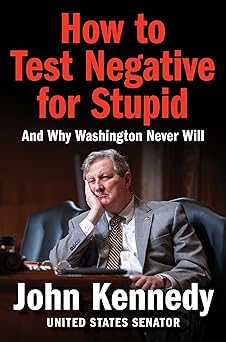
Bill O’Reilly, known for his sharp commentary and historical insights, joins forces with Josh Hammer to deliver Confronting Evil: Assessing the Worst of the Worst. Released in September 2025, this book stands as both a moral investigation and a philosophical reflection on the darkest corners of human nature. It fits neatly within O’Reilly’s well-known approach to blending historical storytelling with ethical evaluation, but this time, it carries a heavier and more contemplative tone.
At its core, Confronting Evil seeks to answer an unsettling question: what drives individuals and regimes to commit acts so heinous that they defy comprehension? The authors explore the faces of evil throughout history, not just to recount their crimes, but to understand their motivations, ideologies, and the conditions that allowed them to rise. Figures such as Hitler, Stalin, Mao, and other tyrants are dissected through moral, psychological, and sociopolitical lenses. Yet the book also delves into lesser-known individuals whose actions may not have reshaped nations but still exemplify the capacity for human cruelty.
O’Reilly and Hammer use a narrative style that mixes factual recounting with moral commentary. The writing is direct, forceful, and often emotional, as the authors wrestle with the moral implications of labeling someone as truly “evil.” They argue that evil is not just a matter of poor choices or misguided ideology—it is a conscious embrace of harm, deceit, and destruction for personal or ideological gain. Throughout the chapters, readers are challenged to consider whether evil is innate or cultivated, and whether society does enough to recognize and resist it before it spreads.
One of the strengths of the book lies in its structure. Each chapter focuses on a particular case study, examining the individual’s background, rise to power, and the atrocities committed under their influence. The authors balance historical detail with ethical analysis, creating a reading experience that is both informative and thought-provoking. This combination helps the book appeal not only to history enthusiasts but also to readers interested in moral philosophy, psychology, and current global affairs.
The collaboration between O’Reilly and Hammer brings a unique dynamic to the writing. O’Reilly provides the journalistic storytelling and accessible moral perspective that have defined his career, while Hammer adds a more academic and analytical touch. Together, they manage to create a conversation-style rhythm that makes even the heaviest topics feel engaging rather than overwhelming. The result is a book that is deeply serious yet highly readable.
Another notable element of Confronting Evil is its relevance to modern times. The authors do not stop at historical examples; they draw parallels between past tyrannies and modern threats—both political and cultural. They warn that evil does not always appear in obvious forms. Sometimes it is cloaked in ideology, bureaucracy, or even the language of progress. This broader definition pushes readers to reflect on current world events and question whether society still possesses the moral clarity to identify and confront evil when it reemerges.
Stylistically, the book follows the narrative style that O’Reilly fans have come to expect. It reads like a series of historical case studies connected by moral reflection and plainspoken commentary. The tone is serious but accessible, and it never loses sight of the human element within these stories. There are no detached academic digressions; instead, the writing stays close to the emotional and moral weight of the subject matter.
Critics of O’Reilly may argue that his moral framing can be too absolute, or that the book occasionally leans toward a black-and-white interpretation of history. However, this is also part of its purpose. Confronting Evil is not meant to dwell in moral relativism—it is a declaration that certain acts and ideologies are undeniably destructive and that civilization depends on recognizing them as such. Whether readers fully agree with the authors or not, the book provokes serious thought about where moral boundaries should be drawn and how easily they can be eroded when society grows complacent.
In terms of emotional impact, the book succeeds in stirring reflection. The stories of cruelty, manipulation, and indifference are difficult to read but necessary to confront. The authors present them not to sensationalize tragedy but to emphasize responsibility—the responsibility of individuals, governments, and citizens to recognize evil before it becomes unstoppable.
Confronting Evil: Assessing the Worst of the Worst is both a historical examination and a moral call to action. It reminds readers that understanding evil is not merely an academic pursuit but a civic and spiritual duty. Through vivid storytelling, firm convictions, and a sobering look at humanity’s darker side, O’Reilly and Hammer have crafted a book that challenges readers to look inward as much as they look back through history.
In the end, this book stands as a powerful and unsettling reminder that evil is not an abstract concept. It is real, active, and persistent—and confronting it requires courage, clarity, and the willingness to see it for what it is.

